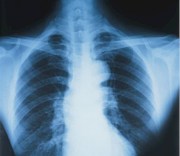Arrhythmogenic right ventricular dysplasia (ARVD) is a rare form of cardiomyopathy. It occurs when the heart muscle tissue in the right ventricle dies and is replaced by fat or scar tissue. As a result, the heart cannot pump properly. Patients with ARVD often have arrhythmias, which can increase the risk of sudden cardiac death. ARVD usually occurs in teens and young adults. It has also been linked to sudden cardiac death in young athletes.
See also on this site: Center for Coronary Artery Anomalies
What are the causes?
Doctors do not know what causes ARVD. It often runs in families, but it can occur in people with no family history of the condition. ARVD may also be caused by congenital conditions (those that are present at birth) and viral or inflammatory myocarditis.
What are the symptoms?
Symptoms of ARVD include palpitations and fainting after physical activity, ventricular arrhythmias, dizziness, and lightheadedness. Heart failure may also be a symptom of ARVD.
How is it diagnosed?
- Holter monitoring gets a nonstop reading of your heart rate and rhythm over a 24-hour period (or longer).
- Echocardiography can be used to show the size of your heart and how much damage there is as well as showing if there is decreased heart wall motion (called hypokinesia or hypokinesis).
- Computed tomography (CT) scanning gives slice-like pictures of your heart that can be used to show how the heart is working.
- Magnetic resonance imaging (MRI) can give detailed pictures of the heart and its various structures.
- Electrophysiology studies (EPS) are usually done in a cardiac catheterization laboratory and help to map the electrical impulses from your heart.
How is it treated?
There is no known cure for ARVD. Instead, treatment is focused on relieving the symptoms. You will likely be given antiarrhythmic medicines. If there is a risk for sudden death, your doctor may recommend an implantable cardioverter defibrillator. If you have ARVD, you will need to ask your doctor about exercising or participating in sports.
Return to main topic: Cardiomyopathy
Updated August 2016



